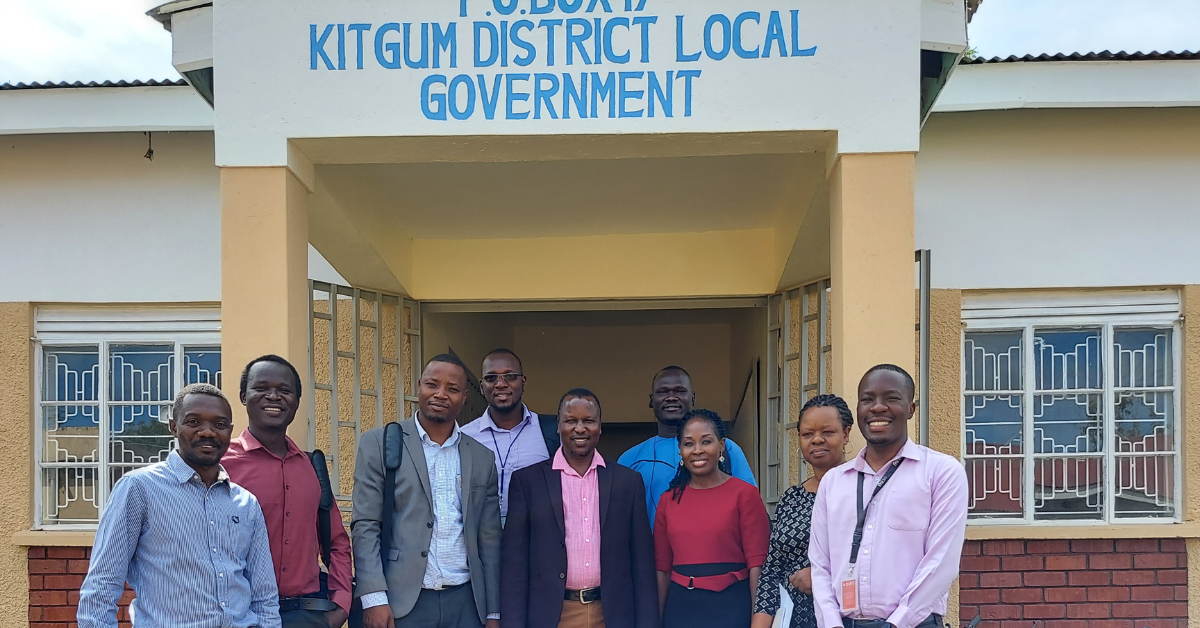Lilian Tutegyereize, FHI 360
Emily Bockh, FHI 360
This post is part of a five-part series about the strategic priorities of the Maximizing Options to Advance Informed Choice for HIV Prevention (MOSAIC) project.
In a post introducing USAID’s first Local Capacity Strengthening Policy, Administrator Samantha Power emphasizes that the agency’s success “is closely tied to our local partners’ strengths, so how we recognize, elevate, and learn from them matters.”
The success of efforts to introduce new pre-exposure prophylaxis (PrEP) methods for HIV prevention, such as the PrEP ring and injectable CAB PrEP, will also rely on local partners. That’s why one of MOSAIC’s five strategic objectives is dedicated to strengthening local partner capacity to design and implement high-quality product introduction activities and research.
Our capacity strengthening efforts build on the progress made through previous USAID-funded initiatives known as OPTIONS, PROMISE, and CHOICE. Local partners in those projects — LVCT Health in Kenya, Pangaea Zimbabwe AIDS Trust, and Wits Reproductive Health and HIV Institute in South Africa — are members of the consortium that leads MOSAIC, along with FHI 360, Jhpiego, and AVAC.
MOSAIC country teams will identify additional local partners and support them to enhance their core competencies (knowledge, skills, and practices) so that they can reach their goals for generating evidence, translating evidence into local programming, and expediting access to and uptake of PrEP products.
In Uganda, the MOSAIC team recently identified a new local partner under this strategic objective. The team is excited to announce its collaboration with The AIDS Service Organization (TASO) Uganda to implement MOSAIC’s CATALYST study in Uganda.
TASO Uganda has been a pioneer in the response to HIV from its formation in 1987. Over the past 35 years, TASO has grown from the country’s first support group for people living with HIV to a comprehensive HIV service organization, demonstrating leadership and building strong management and implementation systems and structures. TASO has also successfully participated in several research projects, making the organization an ideal CATALYST study partner.
The principles for effective programming and equitable partnerships outlined in USAID’s Local Capacity Strengthening Policy guided the formation of this partnership and will continue to do so as the relationship matures. MOSAIC Uganda embraced the first principle, start with the local system, in selecting TASO.Through a systematic mapping of local organizations, the team found that TASO had the technical expertise and experience to support CATALYST study activities in the selected health facilities. In addition, TASO is responsible for HIV services in the Acholi and Ankole regions where CATALYST will be implemented. These regions account for a significant proportion of the burden of new HIV infections and unmet need for PrEP among those supported by USAID.
In alignment with the reimagining of PEPFAR’s 5-by-3 model that upholds community engagement in ending HIV and in recognition of TASO’s rich history of community engagement in HIV prevention and treatment programs, the USAID Mission in Uganda and the Uganda Ministry of Health endorsed TASO as the local implementing partner for MOSAIC and CATALYST activities. In collaboration with FHI 360 in Uganda, TASO will coordinate implementation of CATALYST study activities at seven sites, participate in recruitment and supervision of field study teams, collect quantitative study data, and recruit and follow up study participants.
“We’re excited to partner… on MOSAIC [and] CATALYST. This global partnership gives us an opportunity to apply world-class implementation science methodology to bring new HIV prevention methods closer to our communities. Over the project course, we will leverage other USAID investments in [Uganda] and continue our collaboration with the Ministry of Health and communities to close the gap on new HIV infections as we strive towards a world without HIV and AIDS.”
Dr. Etukoit Bernard Michael, Executive Director, TASO
As the MOSAIC–TASO partnership continues, it will embody the other principles of the Local Capacity Strengthening Policy. MOSAIC plans to conduct a capacity assessment with TASO so we can plan for and measure performance improvement in collaboration with local partners (principle 3). From the assessment outcomes, MOSAIC and TASO will develop a capacity strengthening plan, including institutional and technical capacity strengthening activities led by FHI 360, that aligns with local priorities (principle 4) and aims to strengthen diverse capacities through diverse approaches (principle 2).
At the outset of the partnership, FHI 360 and TASO prioritized discussing common goals and expectations. A clear foundation for the relationship has been set that emphasizes mutual accountability. We recognize that successful partnerships don’t just happen — they are grown from the start and nurtured over time. We look forward to collaborating with TASO to generate evidence on offering women informed choice for HIV prevention and to build a foundation to support sustained access to and effective use of PrEP products.
Featured Image: The Uganda CATALYST team visits the Kitgum district health office prior to a CATALYST site assessment (Rubuna Nagai/MOSAIC).


